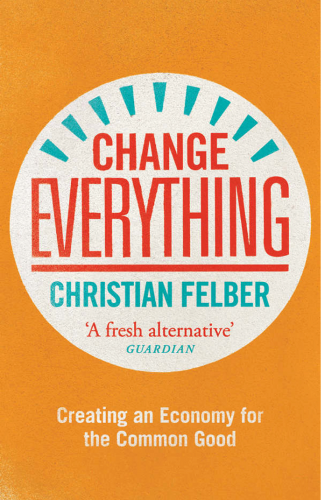 As Karl Polanyi described in his book The Great Transformation, the last few hundred years have seen a constant and conscious drive to create a completely marketised economy, based on 'economic man': citizens whose motivations are completely those of self-interest, expressed entirely through the monetised economy.
As Karl Polanyi described in his book The Great Transformation, the last few hundred years have seen a constant and conscious drive to create a completely marketised economy, based on 'economic man': citizens whose motivations are completely those of self-interest, expressed entirely through the monetised economy.
While market enthusiasts believe (and enthuse) that markets and economic ‘man’ are based on natural laws, it is obvious that reality doesn't conform to their ideology and that the market-dominated society contradicts human feelings of community, poisoning an array of human relationships and destroying the natural environment.
From this context, Christian Felber and his associates have created 'The Economy for the Common Good', a utopian vision of society based on community values where altruism is rewarded and political and economic power returned to the people. In Change Everything Felber lays out a plan for this new society, based on the idea that 'all econonic activity should serve the common good'. Success would be measured not just financially, but with social measures, and Felber lays out a structure for how this could happen. In Felber's new society, financial success could not be achieved without social success, measured by the community. He shows how political power can be returned to citizens from the rich, in a wave of democratisation.
Felber describes a number of means that would be used to rejig society to pursue common goals, including the creation of a 'universal balance sheet' – structures for measuring social contributions, and for auditing enterprises. Anyone familiar with the 'systematic planning process' or 'holistic management' will find the techniques presented here familiar.
While he would acknowledge that achieving an Economy of the Common Good requires implementation on a national or a world scale, Felber's colleagues and supporters have begun to create small-scale enterprises based on the principles of the movement, with experiments in several countries. He also acknowledges that his plan is not the only possible way forward, but a starting point that can be built on, as its implementation meets new and exciting challenges.
Though it sometimes reads like an EU policy document, its central idea is intriguing enough to pull one through. Finishing it, I found myself wanting to live somewhere where the Economy for the Common Good applies, and eager to follow up this book with some action.


